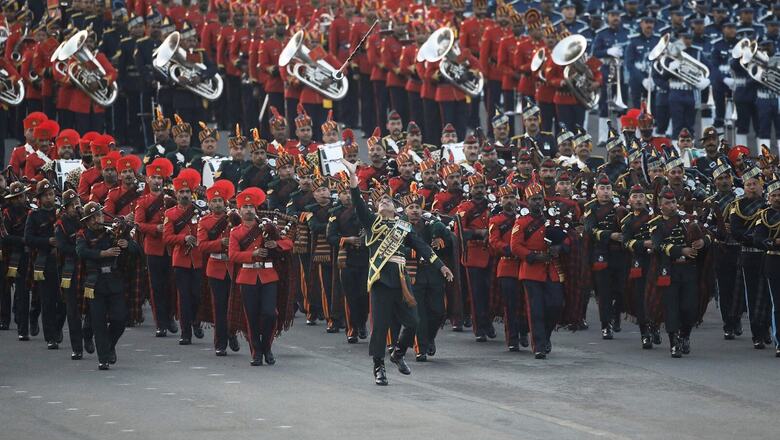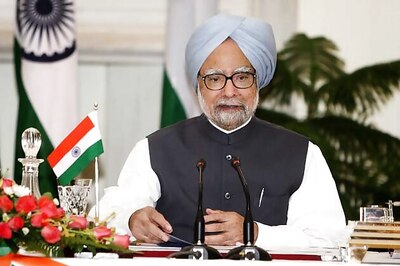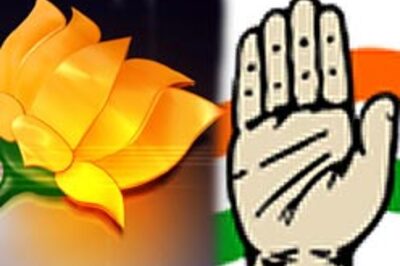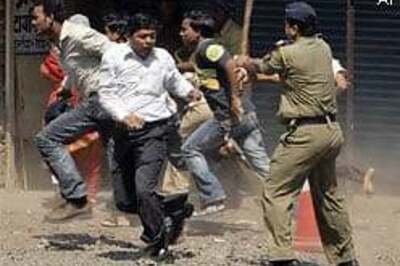
views
After the Navy adopted a new naval ensign earlier this month, dropping a colonial-era vestige of the Saint George’s Cross, the Army will also be reviewing a range of British-era practices that are still followed by the force, to see if they can be discarded, News18 has learnt.
As per defence sources, discussions to do away with some of these legacy practices have been underway for over two years now and some of the changes have been implemented as well.
The plans gathered pace after Prime Minister Narendra Modi in March last year spoke about enhancing indigenisation in military equipment as well as in doctrines, procedures and customs followed by the Armed Forces at the Combined Commanders Conference in Gujarat’s Kevadia.
As per sources, some of the existing customs and traditions of the Army, uniforms and accoutrements, regulations and laws having their roots in the colonial and pre-colonial era will need a review.
Renaming of units, establishments and institutes — especially those set up during the colonial era and carrying an English name — including the Pune-based Queen Mary’s Technical Institute for Differently Abled Soldiers, colonial-era names and insignia of an Army unit or crest as well as various legacy customs and traditions, including Officers’ mess procedures, also likely to be reviewed.
Discussions on affiliation of Army units with foreign armies and that of the Army with Commonwealth Graves Commission are also in the pipeline. There will be reviews on pre-Independence battle honours, which several units of the Army were awarded in the past by the British.
A defence source said the present practice of grant of honorary commissions to Junior Commissioned Officers will also be discussed and so will the existing system of appointing a Colonel of Regiment, military ceremonies such as Beating the Retreat or military funerals in modern hearse vehicles and not in gun carriages.
Sources said that many of these points may come up in an internal discussion chaired by the Army’s Adjutant General Lt General C Bansi Ponnappa on Wednesday.
The efforts, they said, are in line with the Amrit Kaal — a phrase first used by Prime Minister Narendra Modi in 2021 to describe the period between India 75th year of Independence and its 100th year of Independence, which will be celebrated in 2047. Sources added that reviewing some of the legacy practices is also in line with the Panch Pran targets for the next 25 years announced by PM Modi.
“Inputs will be taken from everyone and viewpoints will be collated as part of reviewing some of these legacy practices. The idea is to discuss; no immediate decision may be taken,” a source said.
The efforts garnered mixed reactions from several officers News18 spoke to, with some supporting the process to review obsolete military practices, while others rooted against any hasty move to change the Army customs and traditions followed for centuries.
A senior officer told News18 that military funerals in gun carriages, for instance, makes little sense at present. “It is a remnant of the past colonial traditions and is best done away with,” the officer said, adding that while most such traditions have been done away in the past, some still remain with the Army’s three combat arms.
Another senior officer said much of the colonial-era customs and traditions have already been shed by the Army in the past. “Too many changes being carried out simultaneously in a short time frame as part of the ‘Indianisation process’ of the Indian Armed Forces may not be a great idea,” the officer said.
Earlier this year, the traditional hymn Abide With Me was dropped for the first time since 1950 in the Beating Retreat ceremony on January 29 and was replaced by the Hindi patriotic song Ae Mere Watan Ke Logon.
As per sources quoted above, 75 obsolete laws, practices and procedures of the three defence services are likely to be soon done away with.
There have also been efforts to include indigenous texts such as Arthashastra in military training and strategic studies with more focus on Indian war heroes, leaders and thinkers. The military has also been actively working on putting to rest the use of pre-Independence terms, avoiding anglicised names for military exercises, and call signs, including aviation call signs.
Read all the Latest News India and Breaking News here




















Comments
0 comment